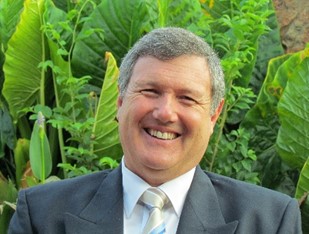What does it mean to you to be elected to the board?
The board of The South African Academy for Science and Arts (SAASA) consists of a number of outstanding and authoritative academics – all of them heavy-weights who have made their mark internationally.
I see it as ’n major privilege to work with such people.
Actually, I was re-elected – I have been serving on the board for six years now and therefore this is my third and last term (and my second term as member of the executive council). It is a compliment to be re-elected – new brooms sweep clean, but if one has been serving for six years and you are re-elected, it seems that you are doing something right.
The overall aim of SAASA is to facilitate and promote the practice of the arts and sciences in Afrikaans without excluding any person in any way. The development and preservation of Afrikaans as scientific language is very dear to my heart, because in the past there were remarkable scientific and technical achievements with Afrikaans as a research and operational language. Afrikaans is therefore a highly developed language in its own right in which one can practise science at the highest level.
The fact that Afrikaans is being used as a political football by some authorities in the democratic dispensation in order to pursue ideological objectives, naturally makes it increasingly difficult for academics to function fully in Afrikaans. However, exclusive Afrikaans was never possible – throughout history all Afrikaans-speaking scientists had to be able to express themselves thoroughly in English, German, Dutch and other world languages if they wanted to take part and compete internationally. In the area of the arts, the pressure on Afrikaans is just as great, but Afrikaans creative writing, poetry, music and other art forms are experiencing a healthy boom that resonates internationally in countries like the Netherlands and Belgium.
For me to serve on the board of an organisation that wants to protect and promote the role of Afrikaans is therefore not only a great privilege to me, but it is also a calling to maintain and further promote the valuable developed nature of the mother tongue of millions of South Africans.
What do you hope to achieve in your term of office?
My objectives do not change – I want to apply my time and energy to the best of my abilities in any capacity, as the board deems fit, to the development of SAASA. It sounds easier than it is – to promote Afrikaans in the democratic order is a task that requires a great deal of sensitivity and poses many challenges.
However, we are continually blessed with competent leadership by some of South Africa’s most prominent business leaders and opinion formers. Our membership is constantly changing from the initial narrow “Afrikaners” to a broader definition of “Afrikaans speakers”, and I would like to dedicate my last term to promoting this transformation further.
What does serving on the board entail?
The board manages all aspects of SAASA at strategic level, which can be divided into operational tasks (the day-to-day management of the head office, financial management, etc.) as well as tasks that are involved with the direct promotion of Afrikaans as language for science and the arts, like the awarding of postgraduate bursaries to students who want to study in Afrikaans, as well as the many prestige prizes that are awarded annually to outstanding achievers in science and the arts. Academics or artists who comply with the requirements of the rules of the different prizes can be nominated by any member of SAASA, and the board then appoints expert review panels who appoint the winners.
Apart from a substantial financial award, prizes come with great prestige, and prize winners are announced in prominent headlines in the media time and again. Prizes are presented during prestige functions that are attended by South Africa’s top scientists and artists, as well as by many international stakeholders.
What does your election to the board mean to the NWU?
Naturally it is good for any research or higher-education institution when some of its staff are elected to serve on national or international bodies that can directly or indirectly influence our core duty, which in the case of SAASA is of course the promotion of science and the arts.
In the past, many of the NWU’s Afrikaans-speaking postgraduate students were supported by SAASA, and many of our staff members have been awarded various of the prestigious prizes. This confirms the image of the NWU as one of South Africa’s most prominent universities that can take its place in the modern international society, and I am grateful that I can be part of the NWU.

Prof Kobus van der Walt
